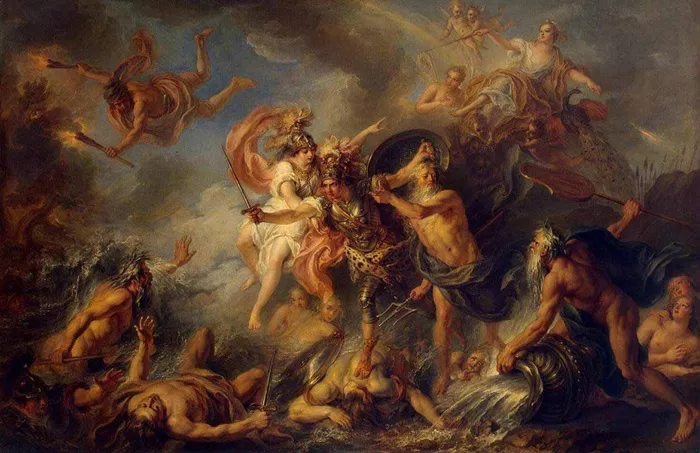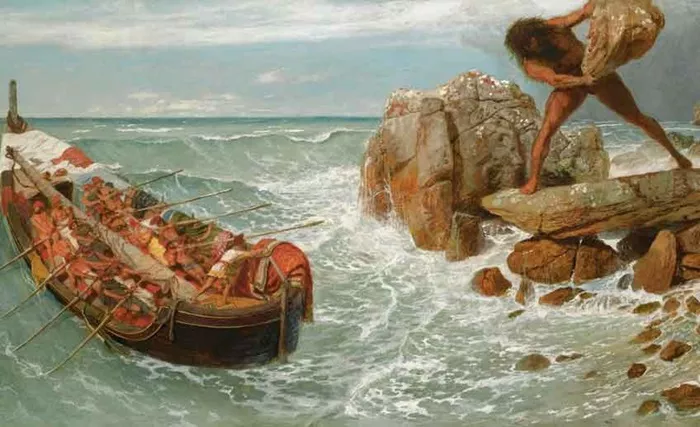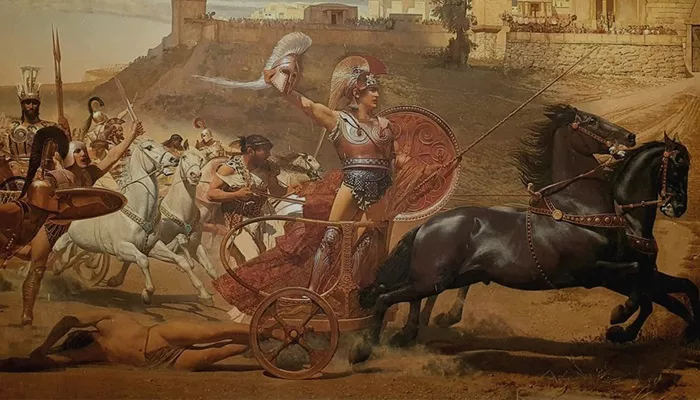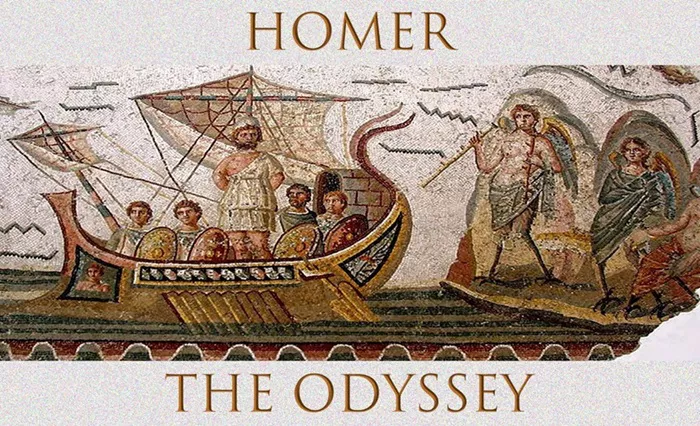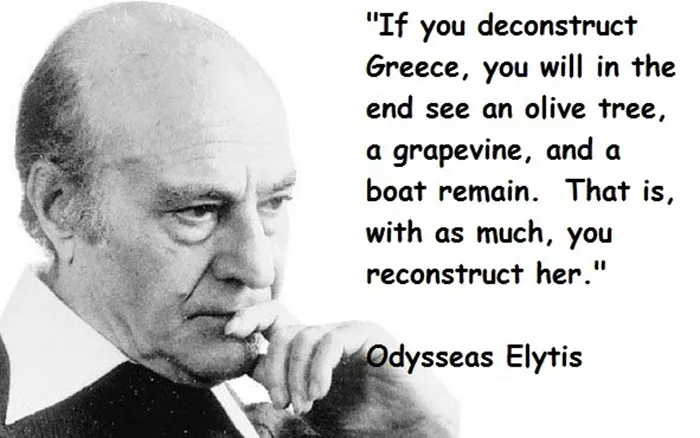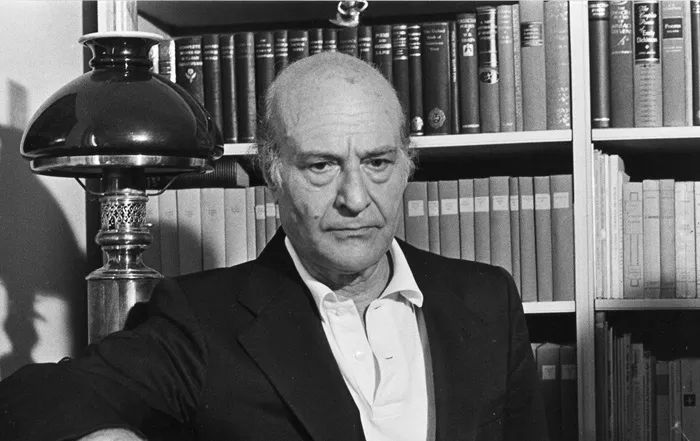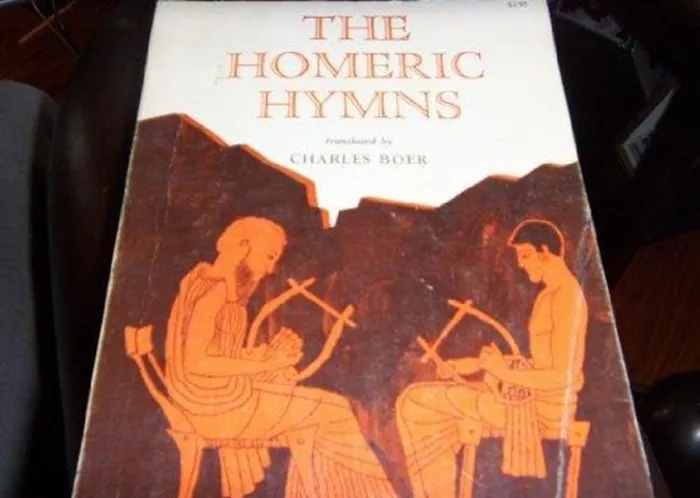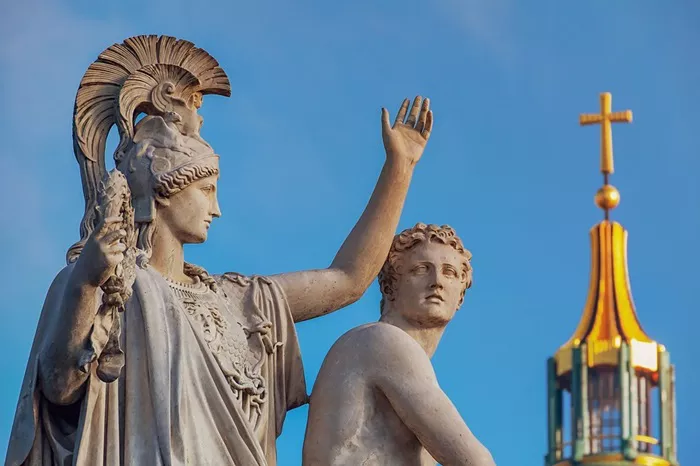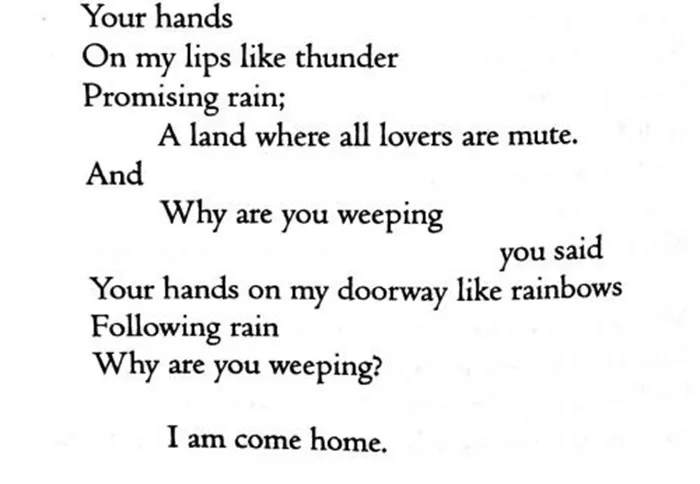Famous Greek poems
The Iliad
by Homer“Sing, O goddess, the anger of Achilles son of Peleus, that brought countless ills upon the Achaeans. Many a brave soul did it send hurrying down to Hades, and many a hero did it yield a prey to dogs and vultures, for so were the counsels of Jove fulfilled from the day on which the son of Atreus, king of men, and great Achilles, first fell out with one another….”
The Odyssey
by HomerTell me, o muse, of that ingenious hero who travelled far and wide after he had sacked the famous town of Troy. Many cities did he visit, and many were the nations with whose manners and customs he was acquainted; moreover he suffered much by sea while trying to save his own life and bring his men safely home; but do what he might he could not save his men, for they perished through their own sheer folly in eating the cattle of the Sun-god Hyperion; so the god prevented them from ever reaching home. Tell me, too, about all these things, O daughter of Jove, from whatsoever source you may know them….
Ode to Aphrodite
by SapphoDeathless Aphrodite, throned in flowers, Daughter of Zeus, O terrible enchantress, With this sorrow, with this anguish, break my spirit Lady, not longer! Hear anew the voice! O hear and listen! Come, as in that island dawn thou camest, Billowing in thy yoked car to Sappho Forth from thy father’s Golden house in pity! … I remember: Fleet and fair thy sparrows drew thee, beating Fast their wings above the dusky harvests, Down the pale heavens, Lightning anon! And thou, O blest and brightest, Smiling with immortal eyelids, asked me: ‘Maiden, what betideth thee? Or wherefore Callest upon me?
The Theogony
by Hesiod…To the unwearied Sun the famous daughter of Okeanos, Perseis, bore Circe and king Aietes. And Aietes, son of man-enlightening Sun, 960 wedded beauteous-cheeked Iduia, daughter of Okeanos, perfect through golden Aphrodite, brought forth to him fair-ankled Medea….
Pythian 8
Pindar…Creatures of a day! What is anyone? What is anyone not? A dream of a shadow Is our mortal being. But when there comes to men A gleam of splendour given of heaven, Then rests on them a light of glory And blessed are their days.
Homeric Hymns
by Homer…I have pleased your heart and thūmos in word or deed. It is about the girl born to me, a sweet young seedling, renowned for her beauty, whose piercing cry I heard resounding through the boundless aether, as if she were being forced, though I did not see it with my eyes. I turn to you as one who ranges over all the earth and sea [pontos]….
I know the night no longer
by Odysseas ElytisI know the night no longer, the terrible anonymity of death A fleet of stars moors in the haven of my heart O Hesperos, sentinel, that you may shine by the side Of a skyblue breeze on an island which dreams Of me anouncing the dawn from its rocky heights My twin eyes set you sailing embraced With my true heart’s star: I know the night no longer I know the names no longer of a world which disavows me I read seashells, leaves, and the stars clearly My hatred is superfluous on the roads of the sky Unless it is the dream which watches me again As I walked by the sea of immortality in tears O Hesperos, under the arc of your golden fire I know the night no longer that is a night only.
Adolescence of Day
by Odysseas ElytisAdolescence of day first lily of joy The ancient myrtle flutters its flag The breast of skylarks shall open to the light And a song shall hover in mid-air Sowing the golden barley of fire To the five winds Setting free a terrestial beaty
Famous Greek poets
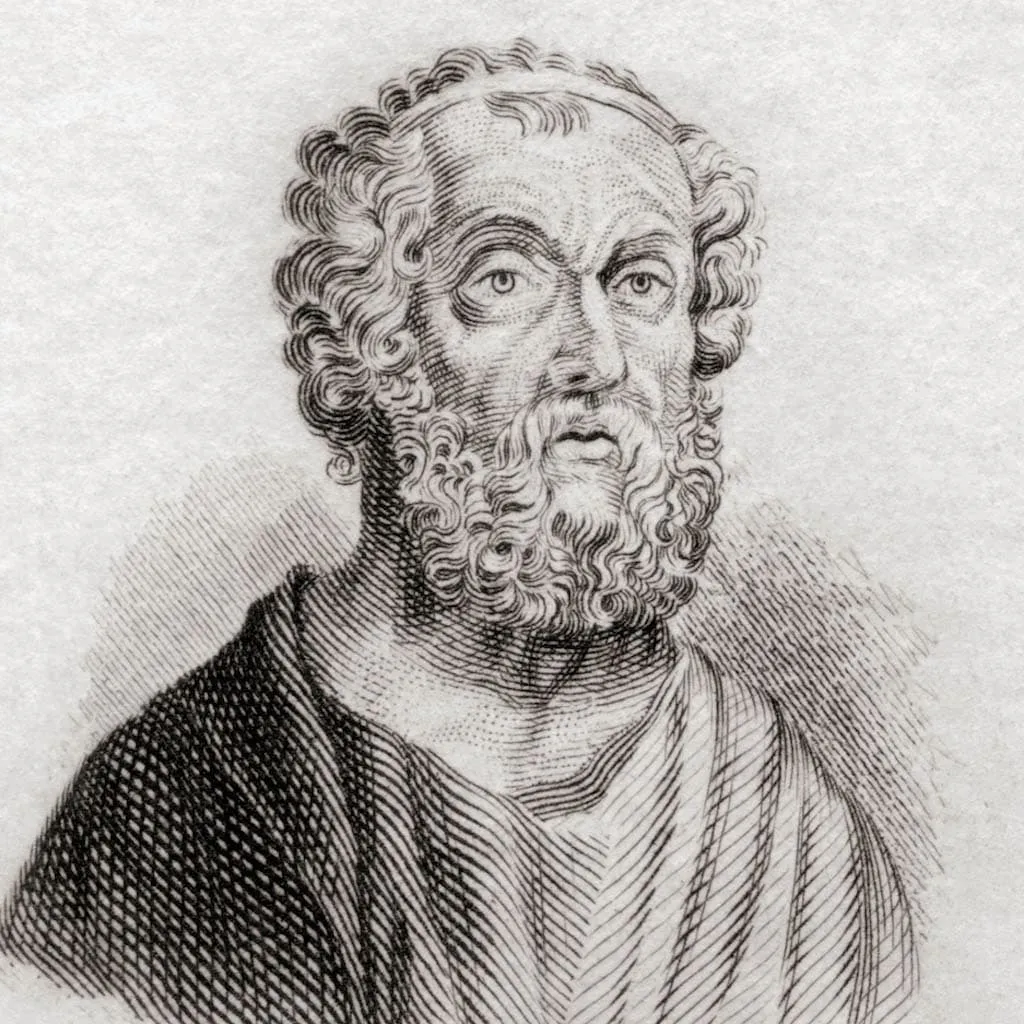
Homer
Homer, believed to have lived between the 8th and 7th centuries BCE, is one of ancient Greece’s most famous poets. His exact birthplace and death remain uncertain. He is credited with composing two epic masterpieces, The Iliad and The Odyssey, which profoundly influenced Western literature, mythology, and storytelling traditions.
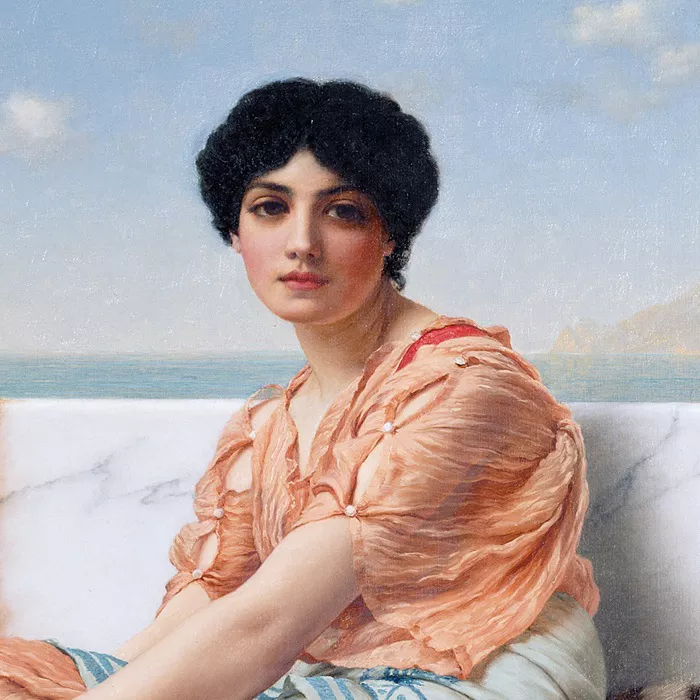
Sappho
Sappho (c. 630 – c. 570 BCE), born around 630 BCE on the Greek island of Lesbos, was a renowned lyric poet, famed for her intimate and emotional poetry. Little is known about her death, possibly around 570 BCE. Her most famous works, though largely fragmented, explore themes of love, desire, and personal relationships, notably her Ode to Aphrodite.
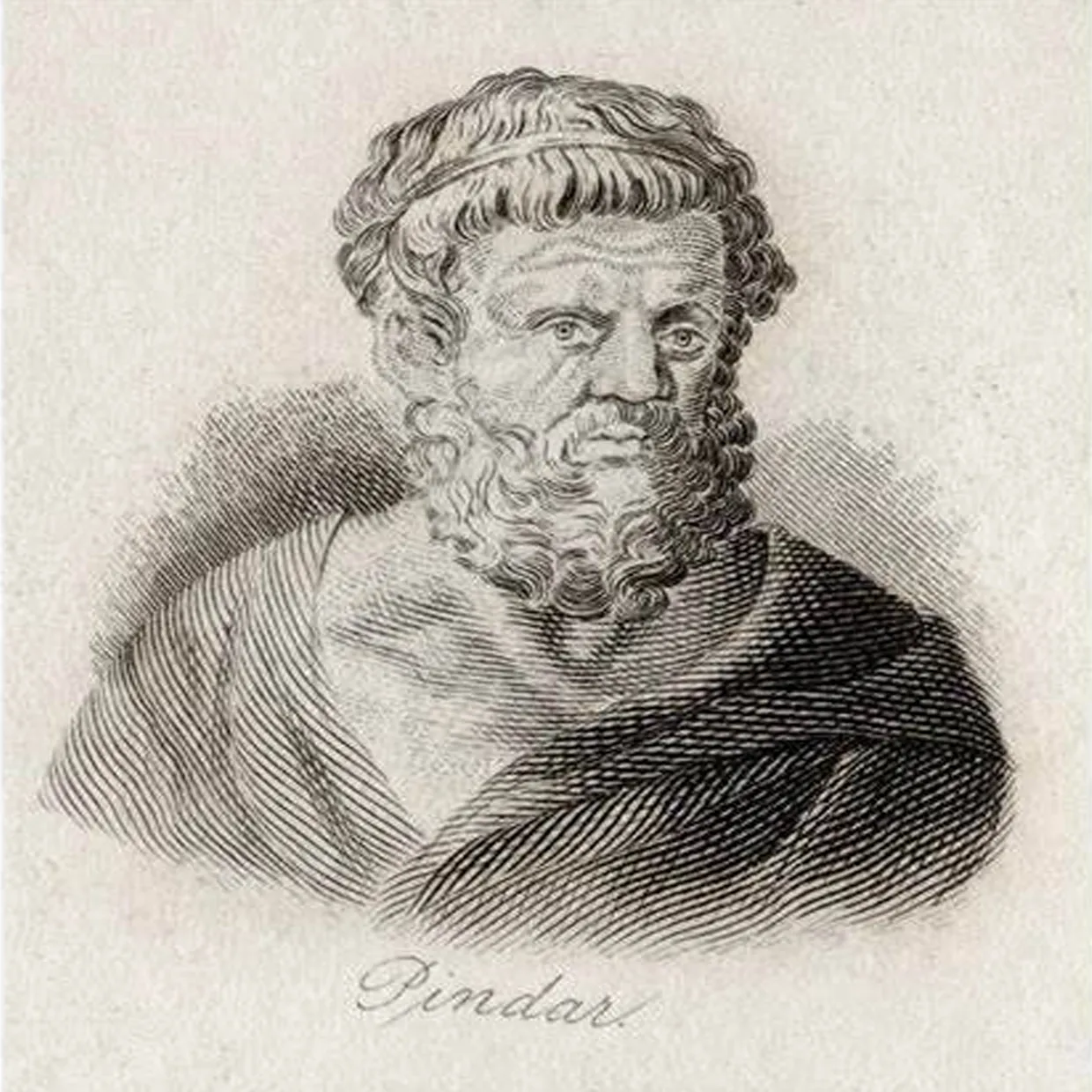
Pindar
Pindar(c. 518 – c. 438 BCE), born around 518 BCE in Thebes, Greece, was a prominent lyric poet known for his victory odes (Epinikia), celebrating athletic triumphs in ancient Greek games. He died around 438 BCE. His most famous works include odes honoring Olympic, Pythian, Nemean, and Isthmian victors, blending mythology, heroism, and moral reflections.
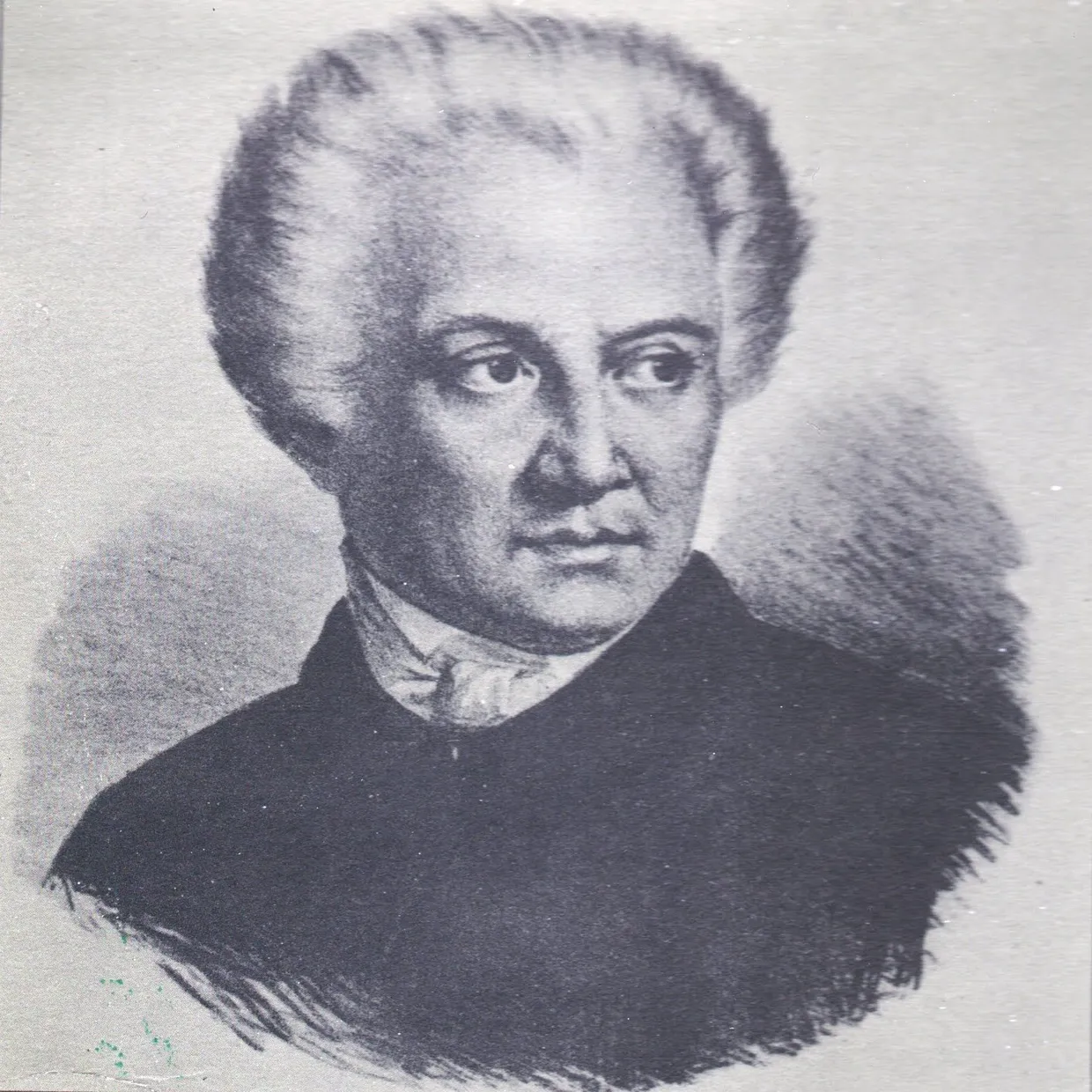
Dionysios Solomos
Dionysios Solomos (1798–1857) was a prominent Greek poet, born on Zakynthos island. He is best known for his poem “Hymn to Liberty,” which became Greece’s national anthem. Other notable works include “The Free Besieged” and “Lambros.” He played a key role in modern Greek literature, promoting the Greek language.
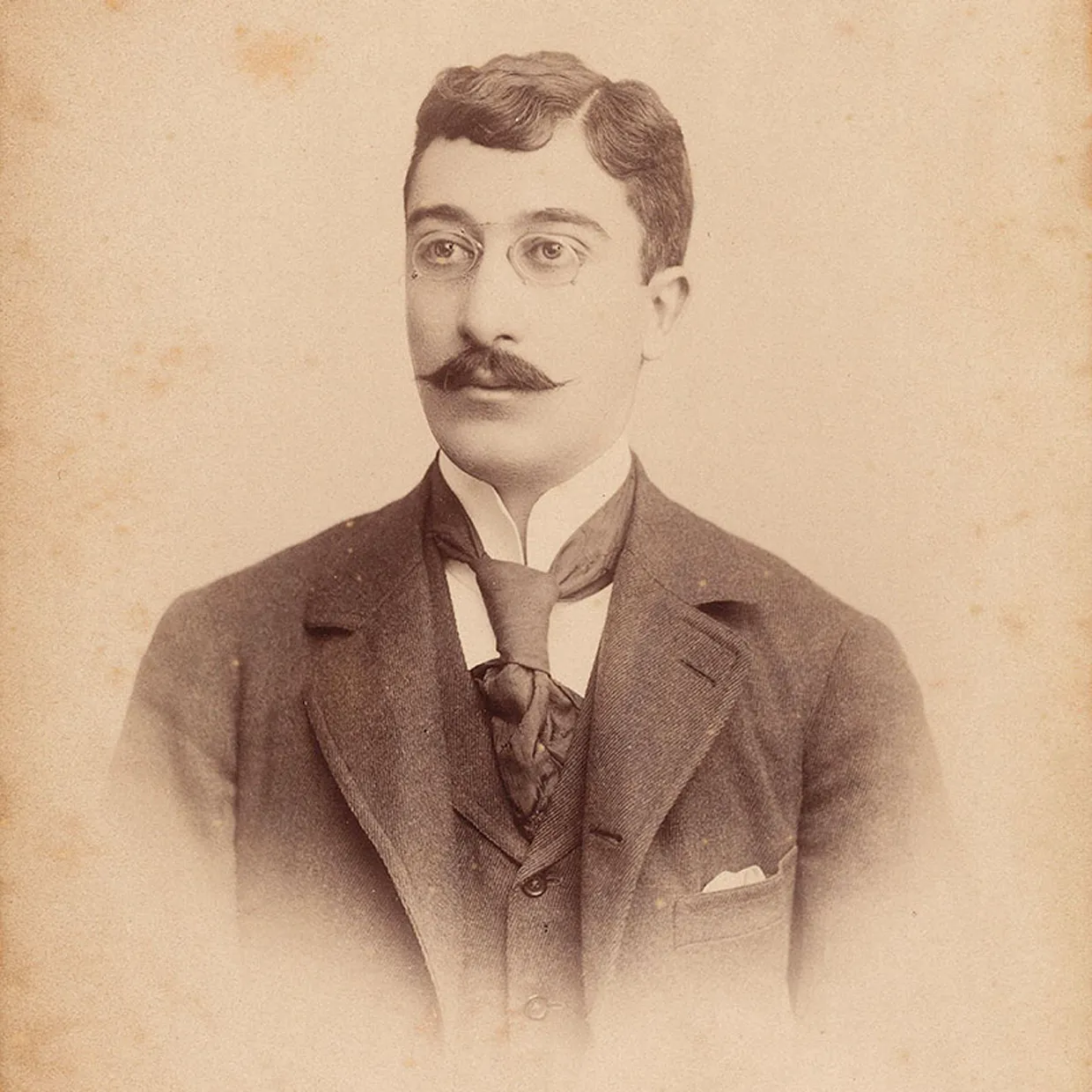
Constantine P. Cavafy
Constantine P. Cavafy (1863–1933) was a highly influential Greek poet known for his historical and philosophical themes. Born in Alexandria, Egypt, he is famous for works like Ithaca and Waiting for the Barbarians. His poetry often reflects existentialism, personal introspection, and ancient history, blending modern and classical influences.
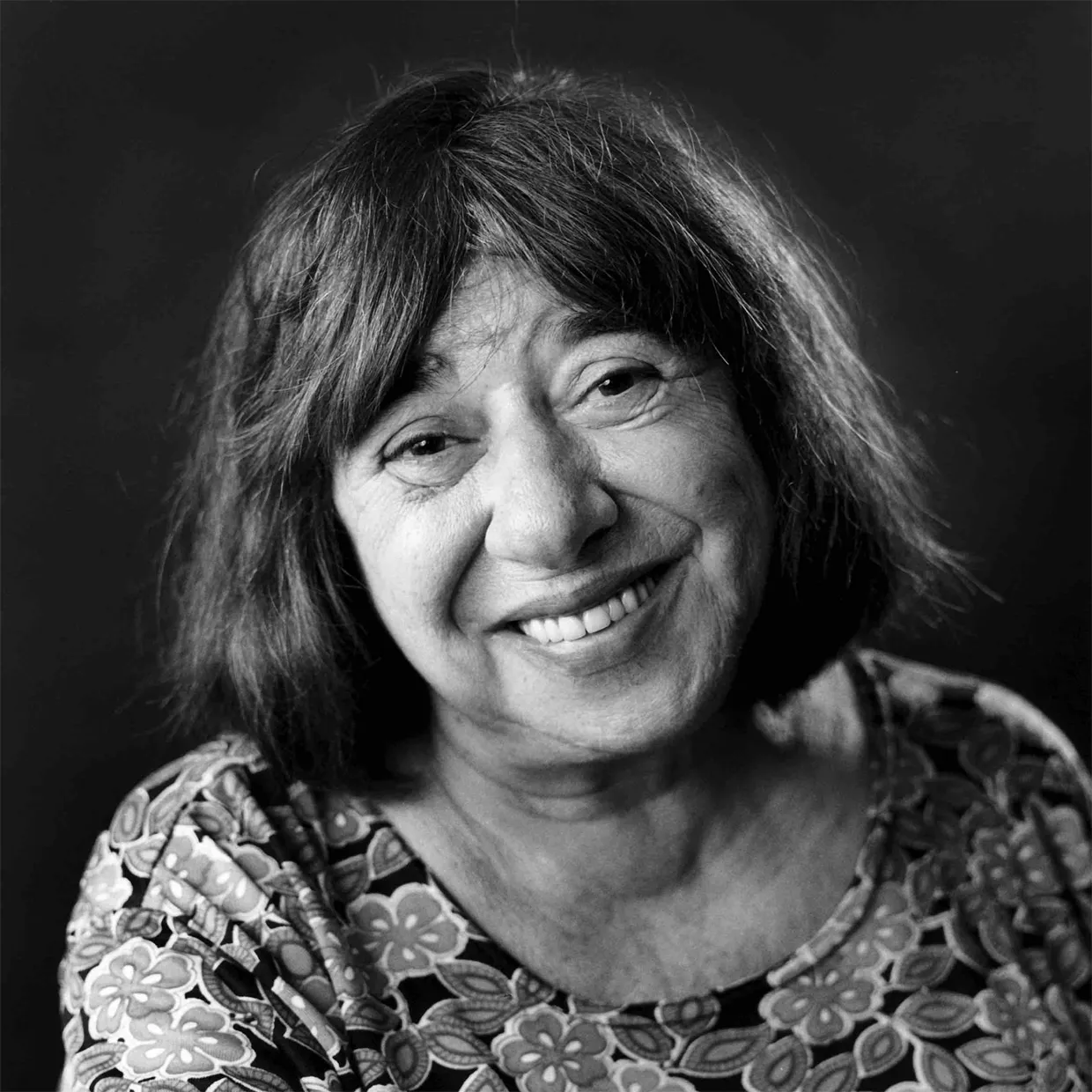
Katerina Anghelaki-Rooke
Katerina Anghelaki-Rooke (1939–2020) was a distinguished Greek poet born in Athens. Her notable works include The Scattered Papers of Penelope and The Body is the Victory and the Defeat of Dreams. Her poetry explores themes of mortality, identity, and the human experience with profound introspection and lyrical depth.

